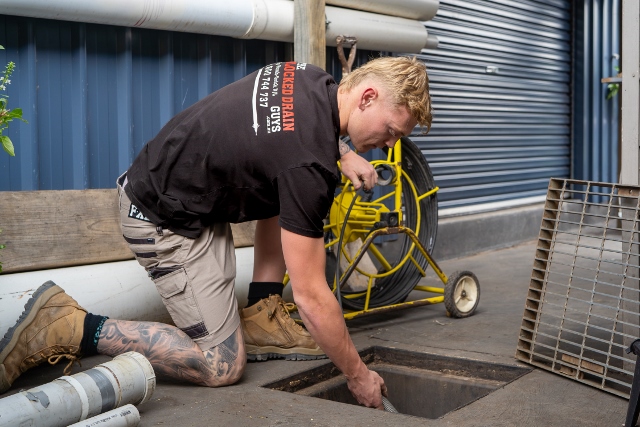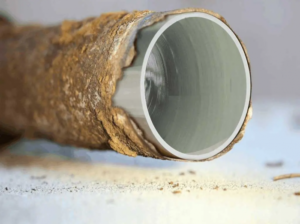It’s a common experience on a cold night to discover your furnace burners not lighting. Not to worry! Try troubleshooting and applying these cures and you’ll soon get your warm home back!
On This Page
- Reasons Why Your Furnace is Not Igniting?
- How to Tell if an Ignitor on a Gas Furnace Is Working
- Furnace Burners Not Lighting: Check the Furnace Power
- Furnace Burners Not Lighting: Check the Standing Pilot
- Why are the furnace burners not igniting?
- How to Repair an Electronic Ignition Gas Furnace
- Types of Electronic Ignition Furnaces
- Check Your Air Filter if Your Furnace Won’t Turn On
- If Your Furnace Won’t Turn on Do a Rapid Check On Your Pilot Light
- Furnace Runs Constant Short Heating Cycles
- Furnace Comes On But Makes a Loud Rushing and Banging Sound and Cuts-out
- How Furnace Ignition Systems Work
Reasons Why Your Furnace is Not Igniting?
This is a fairly common problem homeowner’s face and the first reason is usually that the pilot light is not lit. When this happens, your furnace will not be able to ignite its burners again until the pilot light is relit. The furnace not igniting can happen because of several reasons, so whenever I have an issue like this, I follow a few steps. First, I check the supply of gas, for me, that means checking if I have any propane left. If not, I refill the tank/ cylinder as soon as I can.
However, if that’s not the problem, I take a look at the pilot light thermocouple. In case it’s broken or damaged. If it is obviously damaged buy a new one and replace it. Is the pilot flame very low or prone to going out quite often? A weak flame will not heat the thermocouple sufficiently, in which case no gas will flow to the main burners.
Newer furnaces have electronic ignitions, which don’t encounter the same problem. However, these newer ignitions can still sometimes develop problems of their own that prevent your system from igniting properly. Start troubleshooting these by checking whether the gas line is turned off. There are a few different reasons that someone might shut off the gas supply to your furnace. One might be that unknown to you the furnace has been found to be unsafe. Only open up a closed power line if you know the furnace has not been isolated from the supply for that reason.
How to Tell if an Ignitor on a Gas Furnace Is Working
When the power to the main control panel and gas is “on”, if the furnace start-up sequence is giving problems at the step where the hot surface ignitor visibly “glows” to light the burners nothing happens, you can assume that there is a problem with the ignitor system/ gas valve not opening. That’s how to tell if an ignitor on a modern electronic ignition boiler is faulty. Don’t try to put this right yourself, such matters must only be repaired by trained technicians due to the high safety risk from explosion, fire, or asphyxiation if not done correctly.
Furnace Burners Not Lighting: Check the Furnace Power
On some furnace systems, if one led flash that stays on continuously it can mean that your furnace has no signal coming from the thermostat and will not operate. Turn the power off and check the thermostat for improper settings or connections. On the other hand, one led flash that blinks on and off may mean that your furnace has locked out because it could not ignite after three tries, and must be reset. If you think this may be the problem, switch off the power to your furnace for 20 seconds, or lower the thermostat so your furnace does not try to heat, then reset the thermostat to the previous setting.
If by doing this or similar actions for your furnace model fails to cure the problem. Your furnace itself may be the cause of the problem. It can occur that the switch inside the furnace could have accidentally been switched to off, so always make sure that the power is turned on. Don’t forget that even if you have a gas system, it uses electricity and must be turned on. There will be a power disconnect switch by the furnace. You can also check the breaker to make sure power to the furnace has not been tripped. If it has been tripped, be sure to turn it back on.
Some other troubleshooting actions, to cure furnace burners not lighting, which may apply to some HVAC systems are to:
- Make sure that your thermostat is set to heat and not cool, and ensure that the fan is set to auto
- Check to be sure that the thermostat is set to a temperature high enough to trigger the furnace to emit heat.
- If your thermostat is properly set, ensure that it is getting power—check controller batteries, or if fitted, the fuses and circuit breakers.
- Ensure that the interior components of the thermostat are clean and not visibly damaged. Dust and debris inside the thermostat can cause it to malfunction.
Furnace Burners Not Lighting: Check the Standing Pilot
If you have an old gas furnace and the main burners won’t light, but the pilot flame is visible and the gas supply is on. Check that the thermostat is set to call for heat because sometimes this is all that is needed to get your furnace to fire up! One tip here is that if you hear the click in the thermostat after setting the temp to heat to above the room temp, you know you have turned it up high enough to be demanding heat from the furnace.
Combi-boilers: The system is pressurised from the mains water pressure for combi-boilers which heat hot water on-demand. These are systems which don’t have a hot water tank. With this furnace type, the water pressure may drop gradually. If it drops below a safe level the furnace will not ignite, on-purpose as a safety feature. Troubleshoot this possible reason for your furnace burners not lighting. Look for a dial showing pressure which is marked with a green safe pressure range at the top, and below that, a range of water pressure marked as below the required pressure. If the pressure is clearly below the required pressure the pressure needs raising. When you find such a dial read the furnace instructions on how to to-up the water pressure within the furnace pipes. The cure is usually to connect the boiler to the mains water supply pipe, using the flexible hose provided. Gently open the water valve and let water flow into the combi-boiler until the pressure rises into the green range. Close the water valve and disconnect it. Reset the furnace start sequence. If the main burners still won’t come on, it is time to stop. In most instances, you have done as much troubleshooting as can be done by a non-professional. It’s time to call a trustworthy local plumber and ask them to carry out a diagnosis and repair of the system.
At a more advanced level of knowledge, there is another problem which you might need to troubleshoot on rare occasions when all else works but the system is unable to turn the main gs-valve mechanism to open the gas-valve. When this occurs the thermocouple (or thermopile), which provides more power to power the ignitor and the led lights on the gas control valve, can sometimes allow the pilot gas to flow to light the pilot correctly, but not put out enough power to turn on the main gas part of the valve. Check for any blinking or pattern of led lights (if yours has lights) indicating a fault. A fault is usually indicated by a pattern of blinks in a row, or blinking at alternate short and long intervals, as opposed to the normal healthy indicator blinking sequence of just one or two blinks every 10-30 seconds, depending on the brand.
Why Are the Furnace Burners Not Igniting?
If your furnace burners are not igniting, the first thing we will do is ensure that gas is flowing to your furnace by inspecting the gas valves. We will also check all the electrical connections as well as the thermostat sensors and mechanisms. If your standing pilot light is out, you may need to send for an oil or gas furnace repair technician to re-light it for you. It is important to have a professional handle this task because they will ensure that the flame is properly adjusted, neither too strong nor too weak.
How to Repair an Electronic Ignition Gas Furnace
If your electronic ignition mechanism is not working, we may need to replace it. Another possibility is that your thermocouple may need to be replaced. This would be the case if your ignition system is working properly but the main burners never come on. For expert diagnosis and repair of your gas furnace, regardless of its age or ignition type, you will need to contact a general heating and air conditioning installation fixes and repair company/ plumber.
Is the pilot not lighting when it should? Furnace main burners should light shortly after you set the thermostat. The gas electronic ignition furnace is the most common type of new furnace today but requires a special understanding of its components for repair of hot surface ignition. A small gas flame needs to be always burning, and is known in the jargon of American homeowners as a “pilot light“.
Types of Electronic Ignition Furnaces
If your furnace doesn’t have a standing pilot light, then it has electronic ignition. Furnaces have two types of electronic ignition. These are “glow plugs” or by an electronic spark. In some cases, this type of ignition may create a spark to light a pilot and then behave like a standing pilot furnace as talked about above. But for the most part, they behave as discussed in this section. If the burners won’t light, try our earlier troubleshooting steps.
Newer, more efficient furnaces utilize electronic ignition to eliminate the waste and unreliability of a standing pilot light. There are two types of electronic ignition, intermittent pilot and hot surface ignition. An intermittent pilot system generates a high voltage electrical spark whenever the thermostat calls for heat. This spark ignites a gas pilot, which then works just like the standing pilot light did. A hot surface ignition system uses a resistance heating element similar to a light bulb filament, rather than a spark, to trigger the ignition of the main burners.
Check Your Air Filter if Your Furnace Won’t Turn On
Some furnace types use an air filter. If it is clogged your furnace will not turn on. If clogged, it has not been replaced as frequently as it should have. Get a professional furnace service done on it by a suitably qualified and licensed technician. An air filter which is dirty can cause your furnace to turn off as a safety feature (to prevent overheating). The troubleshooting step for this is to check your air filter. If it is extremely dirty, then wash it if it is a re-useable type, or replace it immediately.
If Your Furnace Won’t Turn On, Do a Rapid Check On Your Pilot Light
If your furnace has a pilot light, look for the flame. Check your owner’s manual or the instructions posted inside the furnace cabinet for step-by-step lighting instructions. Usually, this involves first turning the gas valve to Off and waiting a couple of minutes.
Furnace Runs Constant Short Heating Cycles
If your furnace runs fine but constantly runs many short heating cycles instead of an occasionally long (normal) one, then you need to make an adjustment inside the thermostat on the wall. To make the adjustment, lift off the cover from the thermostat and locate the anticipator. If your furnace is running short cycles, the anticipator is probably set on. 2 or lower. Check your furnace manual and move the lever or dial to the setting they recommend.
Furnace Comes On But Makes a Loud Rushing and Banging Sound and Cuts-out
An older furnace may give a problem whereby the blower comes on, it runs great for 8-10 minute, but then makes a loud rumbling/banging sound and stops working. Changed the oil feed nozzle, cleaning the filter, and cleaning the chimney would not solve this problem. Your oil tank can be full, but every time when push the reset button, the burner will fire but makes a rushing noise, and all activity stops after a while, and a reset is necessary to get the furnace to start again. The problem when this occurs is most likely a blockage in the condensate drain. Find the blockage and allow the water the has built-up in the furnace gas tubes to drain away and all should run again successfully. If an initial inspection shows the condensate drain pipe to be blocked within the boiler do not touch it, and call a qualified plumber straight away. If draining the pipe yourself take precaution to wear gloves and catch all the drained water in a bucket, as the drain-water (condensate) can be acidic and makes your hands feel quite unpleasantly dry.
How Furnace Ignition Systems work
The hot surface ignitor (HSI) is the most commonly used electronic ignition system. It works like a light bulb filament, heating up when electricity is passed through it. Most are made from silicon nitride or silicon carbide. The igniter is located in the flow of gas entering the burners. When the thermostat calls for heat, 24 volts are sent to the electronic ignition control module, which energizes the furnace blower and other systems and sends 120 volts to the HSI.
Conclusion to Solving Furnace Burners not Lighting
Are your furnace burners not lighting, or the furnace pilot light keeps going out, and it’s so cold! If you want to troubleshoot the problem, you need first to understand the workings of your furnace ignition system. Then, when you troubleshoot your furnace problem you may be able to find where the problem is. If the problem is simple you may be able to find a quick cure, flick a switch, and return your home to the comfort of warmth. Furnace ignition systems may be failing due to a simple lack of gas or electrical power. There are many kinds of furnaces that have slightly different ignition systems. However, if you follow the troubleshooting steps and cures we have described in this article and the furnace ignites you can be lucky. If you perform the recommended checks and fail, at least you know that when the plumber does arrive, you won’t be likely to be wasting his time. Finally, don’t ever be tempted to open up your furnace and tamper with the equipment inside. That can be very dangerous unless you are properly trained and know precisely what you are doing.
The post Furnace Burners Not Lighting? – Troubleshoot These Cures and Get Warm! appeared first on GQ Central.





Recent Comments